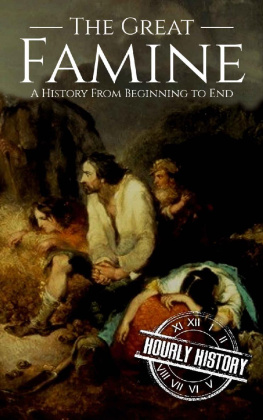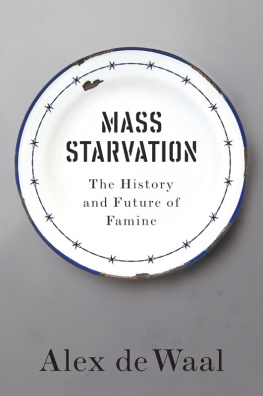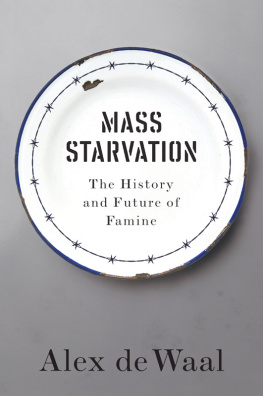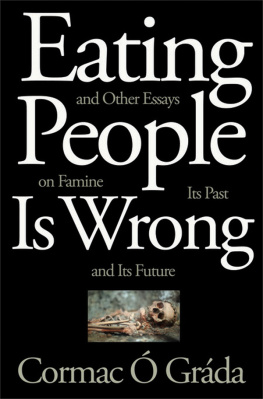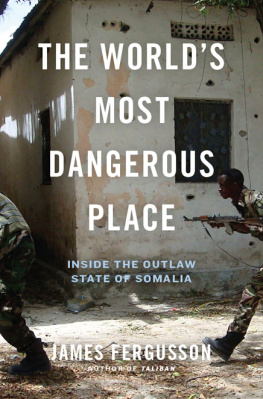Famine in Somalia:
Competing Imperatives,
Collective Failures, 201112
Daniel Maxwell
and
Nisar Majid

- (p.iv) Oxford University Press is a department of the
- University of Oxford. It furthers the Universitys objective
- of excellence in research, scholarship, and education
- by publishing worldwide.
- OxfordNew York
- AucklandCape TownDar es SalaamHong KongKarachi
- Kuala LumpurMadridMelbourneMexico CityNairobi
- New DelhiShanghaiTaipeiToronto
- With offices in
- ArgentinaAustriaBrazilChileCzech RepublicFranceGreece
- GuatemalaHungaryItalyJapanPolandPortugalSingapore
- South KoreaSwitzerlandThailandTurkeyUkraineVietnam
- Oxford is a registered trade mark of Oxford University Press
- in the UK and certain other countries.
- Published in the United States of America by
- Oxford University Press
- 198 Madison Avenue, New York, NY 10016
- Copyright Daniel Maxwell and Nisar Majid 2016
- All rights reserved. No part of this publication may be reproduced,
- stored in a retrieval system, or transmitted, in any form or by any means,
- without the prior permission in writing of Oxford University Press,
- or as expressly permitted by law, by license, or under terms agreed with
- the appropriate reproduction rights organization. Inquiries concerning
- reproduction outside the scope of the above should be sent to the
- Rights Department, Oxford University Press, at the address above.
- You must not circulate this work in any other form
- and you must impose this same condition on any acquirer.
- Library of Congress Cataloging-in-Publication Data is available
- Daniel Maxwell and Nisar Majid.
- Famine in Somalia: Competing Imperatives, Collective Failures, 201112.
- ISBN: 9780190499389
- Printed in India on acid-free paper
(p.vii) Acknowledgments
Many people contributed to this book. We are eternally grateful to the whole team that helped us in our research, particularly the field research team, including Guhad Adan, Khalif Abdirahman, Mark Bradbury, Fouzzia Musse, Khadra Elmi, and Desiree Bartosiak. Guhad and Khalif deserve special mention as they contributed to the findings in many ways, from finding the right people to talk to, conducting the majority of interviews with Somalis, and adding their insights throughout the study process. At Tufts, a dedicated team of research assistants led by Janet Kim, Merry Fitzpatrick, and Heather Stobaugh helped us plow through some 500 documents that predicted, assessed, or, in one way or another, reported on the famine of 2011. The research was a collaborative effort of the Feinstein International Center at Tufts and the Rift Valley Instituteparticularly its field office in Nairobi, and we are grateful to RVI for their support in the study and its dissemination. We are grateful to the publishing staff at Hurst Publishers, and the detailed feedback on the manuscript from two anonymous reviewers.
The research on which this book is based was supported by the Bill and Melinda Gates Foundation and by the Office of Foreign Disaster Assistance (OFDA) of the US Agency for International Development. We are very grateful for their financial support and for their support in raising some of the conclusions found here in policy-making circles worldwide. At Tufts, we would like to acknowledge Elizabeth Gelzinis, Rosa Pendenza, and the entire Feinstein International Center team for their support of this study. We would also like to thank the Rift Valley Institute team, Save the ChildrenEthiopia for their support of field work in Ethiopia, Abdi Aynte and the team at the Heritage Institute of Policy Studies in Mogadishu, and James Oduor and the National Disaster Management Authority for their (p.viii) support of the work in Kenya. For her endless assistance in editing, we would like to thank Joyce Maxwell.
Several individuals were extremely helpful in making connections to specific groups. In particular, we would like to thank Ramadan Assi of the International Medical Corp office in Ankara for helping to introduce us to the head offices of many Turkish agencies, and for his understanding of Turkish and Middle Eastern humanitarian actors more broadly. We would also like to thank Osman Consulting and the UK Muslim Charities Forum for their feedback on the non-Western and Islamic humanitarian actors.
We have benefited enormously from discussions with a number of individuals in the humanitarian community in Nairobi. Due to the constraints of the human subjects rules of research, and our assurances of the confidentiality of the interviews we conducted, we cannot name them here, but they know who they are, and we are grateful for their candor and bravery in the context of a politically fraught humanitarian emergency and response. Any research is of course dependent on the time and patience of the respondents interviewed. We would like to thank many people in the humanitarian communityand hundreds of respondents in Somalia, as well as Ethiopia and Kenya, and other locations too numerous to mention.
Lastly, we would like to thank our immediate familiesJoyce, Patrick, and Emma Clare Maxwell; and Kate Wood, Sami Majid-Wood, and Els Majidfor their support for (and tolerance of !) this study, which inevitably took up much more time and required a lot more travel than expectedand hence absence from home. We are grateful to everyone.
Dan Maxwell, Nisar Majid
(p.ix) Acronyms
ACTED
lAgence dAide la Coopration Technique et au Dveloppement (Agency for Technical Cooperation and Development in English)
ALNAP
Action Learning Network for Accountability and Performance
AMISOM
African Union Mission in Somalia
ARRA
Ethiopian Agency for Refugee and Returnee Affairs
BBC
British Broadcasting Corporation
CaLP
Cash Learning Partnership
CARE
Not an acronymnow just the name of an NGO.
CBRWG
Cash Based Response Working Group
CDR
Crude Death Rate
CfW
Cash for Work
CHF
Common Humanitarian Fund (UN)
CVMG
Cash and Voucher Monitoring Group
DARA
Not an acronyma humanitarian evaluation organizationin Madrid
DFID
Department for International Development (UK)
EW
Early Warning
EWS
Early Warning System
FAO
Food and Agriculture Organization (UN)
FAOSTAT
FAO Statistics database
FEWSNET
Famine Early Warning System Network
FSNAU
Food Security and Nutrition Analysis Unit for Somalia
FTS
Financial Tracking System (OCHA)
GAM
Global Acute Malnutrition
GCC
Gulf Cooperation Council
(p.x) GPPI
Global Public Policy Institute (Berlin)
HAP
Humanitarian Accountability Partnership
HEA
Household Economy Analysis
HF
Humanitarian Forum
HPG
Humanitarian Policy Group
IASC
Inter-Agency Standing Committee on Emergency Response
ICAI
Independent Commission on Aid Impact


